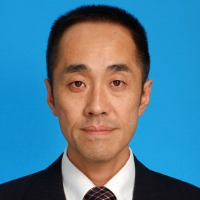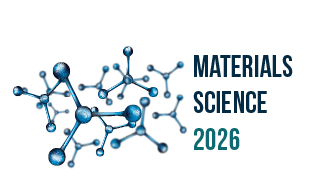3rd Global Event on
Materials Science and Engineering
October 29-30, 2026 | Berlin, Germany

Materials Science 2026

Hiroshima University, Japan
Abstract:
In this lecture, I will introduce a technique to control and quantify the carrier density injected into π-conjugated polymers by an electrochemical method called potential step chronocoulometry (PSC). Using potential-step chronocoulometry (PSC), the doping levels of π-conjugated polymers were controlled by the applied voltage and precisely quantified. In concert with the electrochemical oxidation of the polymers, the doping levels gradually increased and finally reached around 20–30%, suggesting that one positive charge is formed on every three to five monomer units. The maximum value of the doping levels was affected by the electron-donating natures of the polymers. The plot of log(doping level) vs. electrode potential fits a straight line in the low doping region, and saturated. The saturated values were changed depending on the chemical structures of the π-conjugated polymers. We found for the first time that in the logarithmic plot of the Seebeck coefficient and the doping level, a good linear relationship was obtained in a wide doping range from 1 to 20%, and the slope values were changed depending on the chemical structures of the π-conjugated polymers.
Biography:
Dr. Ichiro Imae received the Bachelor, Master and Doctor degrees (Engineering) from Osaka University (Osaka, Japan) in 1992, 1994, and 1997, respectively. During his doctor course, he worked as a Research Fellow of Japan Society for the Promotion of Science (JSPS) from 1994 to 1997. In 1997, he joined with Japan Advanced Institute of Science and Technology (JAIST) (Ishikawa, Japan) as an Assistant Professor. Since 2006, he is an Associate Professor of Hiroshima University, Hiroshima, Japan. Also, he worked as an Adjunct Lecturer of Muroran Institute of Technology and a Visiting Professor of Huazhong University of Science and Technology in 2018.
